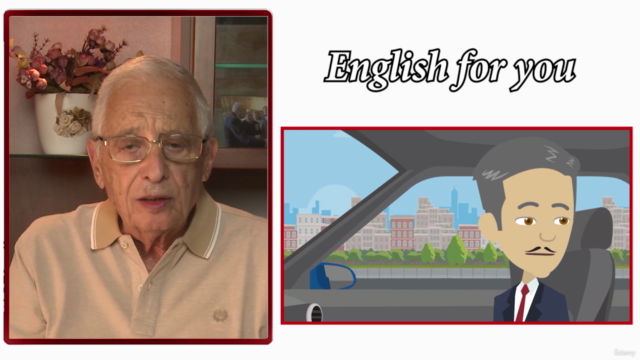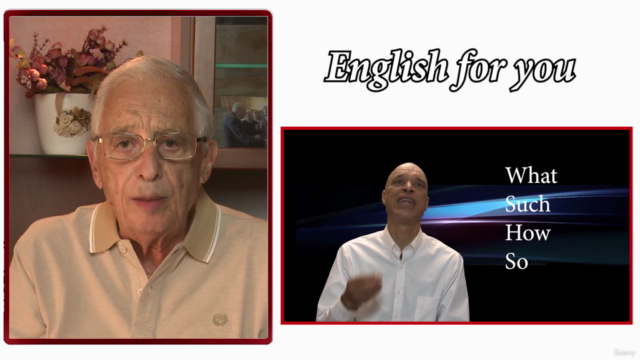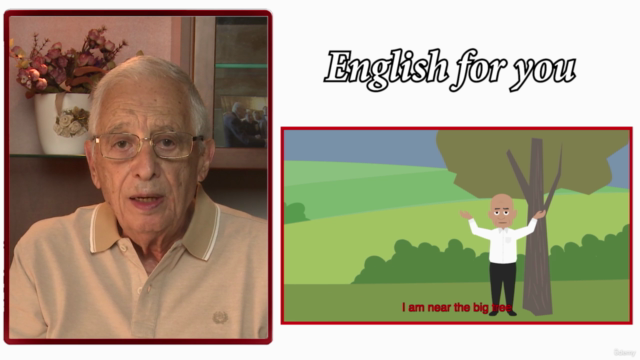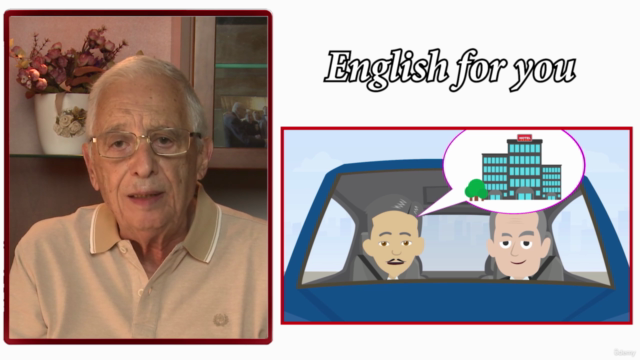English for you - version francophones

Why take this course?
It looks like you've outlined a comprehensive English as a Foreign Language (EFL) curriculum, likely structured for students who are learning English. This curriculum covers a wide range of topics, from basic vocabulary and grammar to more advanced language structures and idiomatic expressions. Here's a brief summary of the topics covered in each unit:
Unit 1:
- Basic greetings and introductions
- Simple present tense
- Articles (a, an, the)
- Prepositions of place
Unit 2:
- Describing people and things
- Comparative adjectives
- Adverbs of frequency
- Possessive pronouns
Unit 3:
- Days of the week/time expressions
- Making suggestions (can, might, could, should)
- Phrases for requests and offers
Unit 4:
- Spelling rules
- Present continuous tense
- There is/there are
Unit 5:
- Future simple tense with "will"
- Polite forms
- Possessive adjectives (my, your, his, her, its, our, their)
Unit 6:
- Greetings and farewells
- Possessive pronouns (mine, yours, etc.)
- Family relationships
Unit 7:
- Expressing opinions and reactions (e.g., "How do you do?" as a greeting)
- Social etiquette (e.g., "Let’s go to a coffee shop")
- Present continuous tense for future arrangements
- Willingness and predictions ("It’s going to rain")
- Present perfect tense
Unit 8:
- Necessity ("had better," "had to")
- Irregular verbs (e.g., "talk," "go," "buy")
- Comparative forms of adjectives and adverbs
- Expressing likes and dislikes ("Italian food is so delicious!")
Unit 9:
- Wishes and hypothetical situations (if + past simple vs. present perfect)
- Conditional sentences (zero, first, second, third conditional)
- Verb tenses to describe past actions versus ongoing habits
Unit 10:
- Time expressions ("What time is it?")
- Question tags for polar questions and affirmatives
- Indefinite pronouns (some, any, every, each)
- Expressing current situations or events that have just occurred ("I’m dying of thirst," "I arrived 20 minutes ago")
This curriculum provides a solid foundation in English and helps students develop their listening, speaking, reading, and writing skills. It's structured to gradually introduce more complex concepts, ensuring that learners build upon their knowledge as they progress through the units. The inclusion of cultural expressions and social interactions is particularly valuable for EFL learners, as it not only teaches the language but also helps them understand and navigate English-speaking contexts more effectively.
Course Gallery




Loading charts...